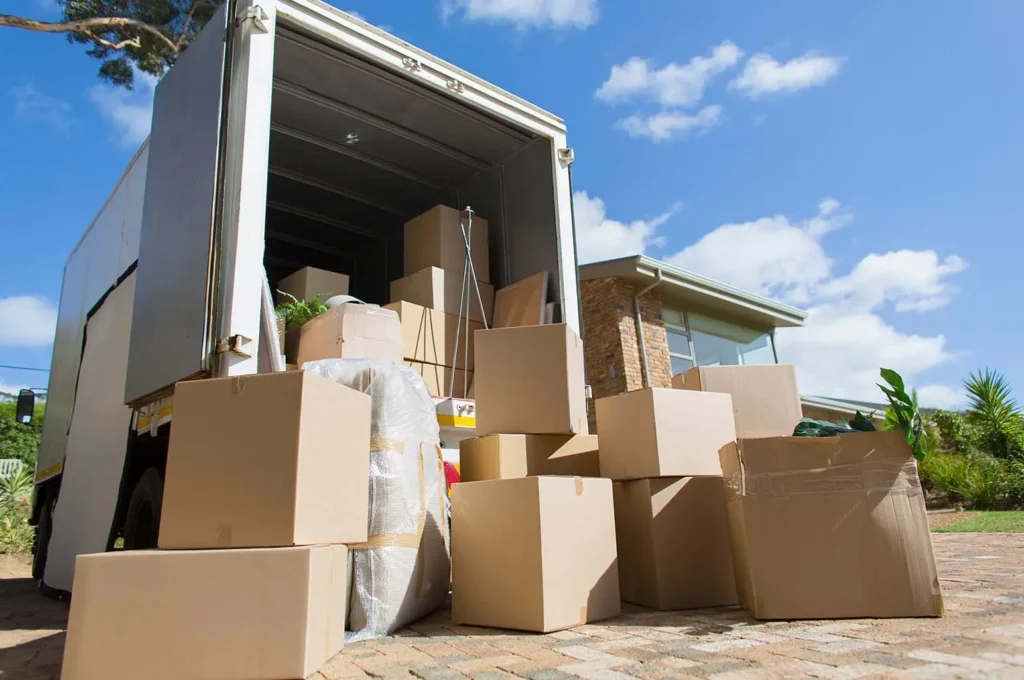Moving far away can be a challenge, but for those on a budget, it may seem nearly impossible. People often underestimate the costs associated with long-distance relocations, focusing only on the distance and forgetting about hidden expenses that quickly pile up. Is your budget ready for this type of move, or will you face unpleasant surprises along the way?
Let’s examine what affordable really means when it comes to long-distance relocations and whether your budget can handle the reality of those costs.
Key Points:
- Moving costs go beyond just distance
- Expect unexpected expenses that affect your budget
- Plan with realistic numbers to avoid overspending
- Moving supplies and professional services are necessary costs
Why Your Budget Needs a Reality Check
Long-distance moving may seem straightforward, but financial surprises happen more often than expected. Many believe that the main expense is the distance itself, but that’s far from the truth. The reality is that long-distance relocations come with a lot of hidden expenses. Travel, fuel, packing supplies, and professional help all add up. Having a solid understanding of what you’re up against can prevent overspending, ensuring your move stays affordable.
One common mistake is failing to account for the little things. Everything from tape to extra travel expenses adds up quickly. Another issue arises when people assume they can move without professional help. While it may seem like a cost-saving strategy, it often backfires with delays, damage, and stress.

Source: bradfordmoving.com
Considering Professional Movers
Many hesitate to hire professional movers due to the perception that it’s a luxury option, not something for those on a budget. However, professional movers may save money in the long run. The risk of damage or delays can often lead to more spending than anticipated when trying to handle a move independently. Professional services streamline the process, prevent common mistakes, and save valuable time.
If you’re considering hiring long distance movers, look for companies that offer budget-friendly options, like Ace Moving Co. They offer tailored solutions for those who need assistance without breaking the bank. Hiring long-distance movers ensures that all the logistical aspects, such as packing and transportation, are covered, so you won’t have to worry about additional costs creeping up later.
Hidden Costs to Prepare For
It’s easy to overlook certain costs, but they can quickly push a budget out of control. One area often forgotten is the price of packing materials. Boxes, tape, padding, and labels are necessary. Without proper preparation, items could get damaged during transportation, leading to higher replacement costs.
Another hidden expense is travel. You’ll have to account for personal travel costs as well as fuel surcharges and other logistical fees. And don’t forget the insurance. While it may seem unnecessary, insurance for long-distance relocations can be a lifesaver. If something breaks or gets lost during the move, insurance can cover replacement costs, saving you a lot of frustration and money in the long run.
Downsizing Before the Move
One way to keep costs under control is by reducing the amount of stuff you plan to take. Long-distance movers often calculate charges based on weight, so if you can get rid of unnecessary items, you might save more than expected. Furniture, old clothes, or things you rarely use can be sold, donated, or recycled before you relocate.
Think practically. Do you really need everything you own in your new home? Can some things be replaced at a lower cost after you move? Downsizing is an easy way to shrink the size of your move, helping to control expenses and even earn a bit of money if you choose to sell unwanted items.

Source: patch.com
The Importance of Timing
Busy seasons, like summer, mean higher demand for movers and services. Higher demand means higher prices. If you can plan your move during an off-peak time, it could save you hundreds of dollars.
Flexibility is key. While it may not always be convenient to plan your move during off-season months, the cost savings can make it worthwhile. Additionally, booking movers in advance ensures you won’t be scrambling for last-minute services, which are often more expensive.
Planning Realistically
Plan for every potential expense. Include everything you might need during the process. Failing to plan often leads to overspending. Look at moving services, packing supplies, insurance, travel expenses, and even temporary housing if necessary. Every detail matters.
Start by gathering quotes from various movers. Compare their rates and services, but don’t just go for the cheapest option. Sometimes the lowest quote comes with hidden fees or low-quality service. Instead, look for movers who are transparent about their prices and offer reliable, professional help. Ace Moving is known for its transparency and reliability, giving peace of mind to those planning a long-distance relocation.

Source: grahamco.co.uk
The Role of Moving Supplies
A common misconception is that using cheap or free packing materials will save money. In reality, it often leads to damaged goods and higher costs. Investing in proper moving supplies is a smart move that prevents fragile items from breaking during the move. Professional movers often provide higher quality boxes and padding, which reduce the chance of damage.
The cost of good supplies is worth the peace of mind. Consider it part of your moving budget and not an extra cost. Properly packed items will save you time and stress once you arrive at your new home.
Preparing Your New Home in Advance
Many overlook the costs associated with preparing the new home. Will utilities be set up when you arrive? Do you need to purchase furniture or appliances? Planning for the expenses tied to setting up your new space is critical for staying within budget.
Before moving, make sure your new residence is ready. That means checking that water, electricity, and internet are functional. Moving into a home that isn’t ready could result in temporary housing costs, which can quickly spiral out of control. Having everything in place before the move will save money and reduce stress.
How to Avoid Overpacking
Many people bring far too many belongings with them on a long-distance relocation. Overpacking leads to extra charges, especially when movers base costs on weight. To avoid paying for unnecessary items, be strategic about what you pack. Only bring items that are truly needed in your new space.
Sort through your belongings and create a list of must-haves versus items that can be replaced later. Essentials should always take priority, while bulkier, less important items can be left behind. The more you reduce, the easier it will be to keep your moving budget intact.

Source: sparklymaidmiami.com
Conclusion
Moving long distances comes with costs that go beyond what most people expect. From packing materials to travel expenses, every part of the process requires careful financial planning. Professional movers can help simplify the process, but it’s important to get quotes, downsize, and plan ahead.
If you haven’t budgeted for the entire process, now is the time to re-evaluate. No one wants to be caught off-guard by unexpected costs, and with the right planning, your move can stay affordable. Be realistic, plan in advance, and always consider professional help when necessary. Avoid shortcuts, and your move can be affordable without any costly surprises.











